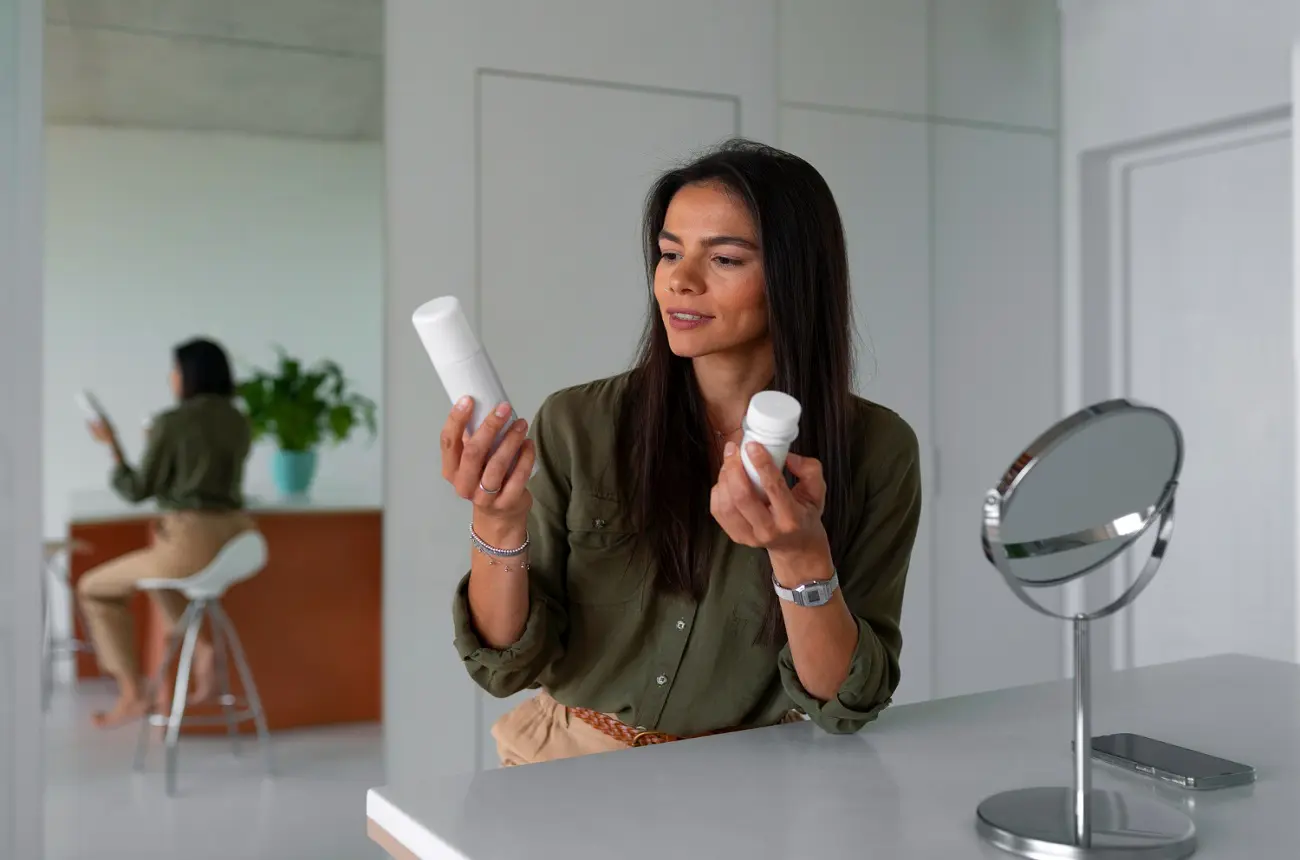Verify Your Email Address
Please ensure to verify your email for confirmation. We recommend checking your spam and trash folders as well.

The beauty industry is a flourishing landscape, constantly evolving to meet the diverse needs and desires of consumers. Within this expansive market, a significant battleground has emerged between private label skin care and cosmetics. Both sectors offer unique advantages and challenges, and understanding the dynamics of this beauty branding battle is crucial for businesses and consumers alike.
Private label skin care involves companies creating and manufacturing products on behalf of other brands, allowing them to customize and market the products as their own. This approach enables retailers to have exclusive control over the branding, packaging, and formulation of their skincare products. One of the primary advantages of private label skincare is the ability to bring high-quality, customized products to the market without the need for extensive research and development.
Brands can focus on building their image, marketing strategies, and customer relationships while relying on the expertise of private label manufacturers to produce effective skincare formulations. This approach often leads to a faster time-to-market and reduced costs compared to developing products from scratch.
Similar to private label skincare, private label cosmetics offer brands the opportunity to customize and sell makeup products under their own name. This includes a wide range of products such as lipsticks, eyeshadows, foundations, and more. The flexibility and control over formulations and packaging attract many cosmetic brands to opt for private label solutions.
Customization and Brand Identity:
Skin Care: Brands can tailor skincare formulations to meet specific needs, promoting unique ingredients and benefits.
Cosmetics: Customization extends to colors, textures, and finishes, allowing brands to create a distinct identity in the highly competitive cosmetic market.
Innovation and Time-to-Market:
Skin Care: Private label skincare can quickly adapt to emerging trends, introducing innovative formulations without a prolonged development process.
Cosmetics: Speed to market is a crucial advantage, enabling brands to capitalize on fast-changing cosmetic trends and consumer preferences.
Quality Control and Trust:
Skin Care: Brands can ensure product quality and safety through rigorous testing, fostering trust among consumers.
Cosmetics: Quality control is imperative to uphold a positive brand image, especially in the competitive cosmetic market where consumers prioritize product efficacy and safety.
Market Dynamics:
Skin Care: Growing consumer awareness of skincare routines and ingredients drives the demand for specialized and effective products.
Cosmetics: The cosmetic industry thrives on trends and seasonal changes, requiring brands to stay agile and responsive to consumer demands.
In the beauty branding battle between private label skincare and cosmetics, both sectors offer unique advantages. Whether a brand chooses to focus on skincare or cosmetics, understanding the market dynamics, consumer preferences, and the need for innovation will be key to gaining a competitive edge. The beauty industry’s evolution continues, and the winners in this battle will be those who effectively blend customization, quality, and brand identity to capture the hearts and minds of beauty enthusiasts worldwide.

High Quality, Low Price, No Minimum, One-stop Private Customized Cosmetics Shopping Website.
| Cookie | Duration | Description |
|---|---|---|
| cookielawinfo-checkbox-analytics | 11 months | This cookie is set by GDPR Cookie Consent plugin. The cookie is used to store the user consent for the cookies in the category "Analytics". |
| cookielawinfo-checkbox-functional | 11 months | The cookie is set by GDPR cookie consent to record the user consent for the cookies in the category "Functional". |
| cookielawinfo-checkbox-necessary | 11 months | This cookie is set by GDPR Cookie Consent plugin. The cookies is used to store the user consent for the cookies in the category "Necessary". |
| cookielawinfo-checkbox-others | 11 months | This cookie is set by GDPR Cookie Consent plugin. The cookie is used to store the user consent for the cookies in the category "Other. |
| cookielawinfo-checkbox-performance | 11 months | This cookie is set by GDPR Cookie Consent plugin. The cookie is used to store the user consent for the cookies in the category "Performance". |
| viewed_cookie_policy | 11 months | The cookie is set by the GDPR Cookie Consent plugin and is used to store whether or not user has consented to the use of cookies. It does not store any personal data. |
Please ensure to verify your email for confirmation. We recommend checking your spam and trash folders as well.